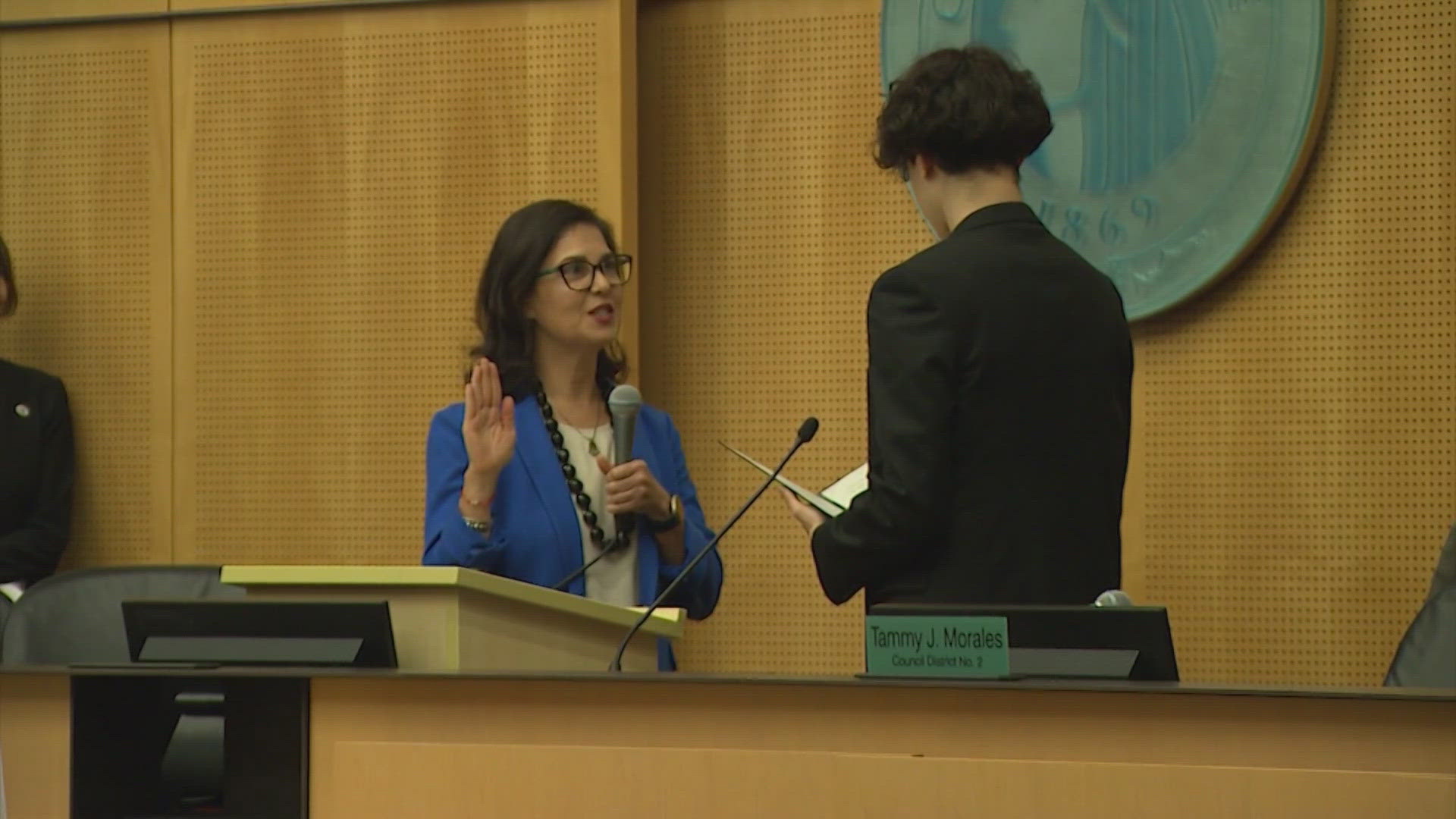In November, posts connecting The Heritage Foundation, the conservative think tank behind Project 2025, and Hobby Lobby were shared across social media platforms.
Project 2025 is an initiative launched in April 2022 to provide a roadmap for the next conservative president to transform the government in favor of conservative social policies and ideals.
The social media posts claim The Heritage Foundation’s Director of Finance David Green also owns Hobby Lobby, a retail chain that specializes in crafts and home décor. Hobby Lobby has a history of advocating for various conservative causes.
“The Heritage Foundation is behind Project25. Their Director of Finance is David Green. Owner of Hobby Lobby. You know what to do,” one of the posts says.
THE QUESTION
Does The Heritage Foundation’s director of finance own Hobby Lobby?
THE SOURCES
- Bio for David Green, founder and CEO of Hobby Lobby, on the company’s website
- Photo of David Green, the director of finance at The Heritage Foundation, on the think tank’s website
- Ellen Keenan, a spokesperson for The Heritage Foundation
THE ANSWER
No, The Heritage Foundation’s director of finance does not own Hobby Lobby.
WHAT WE FOUND
Claims that The Heritage Foundation’s finance director owns Hobby Lobby are false.
The founder and current CEO of Hobby Lobby and The Heritage Foundation’s director of finance both have the name David Green, but they are two different people. However, both of them do have ties to conservative causes.
“No, they are not the same person,” Ellen Keenan, a spokesperson for The Heritage Foundation, wrote in an email to VERIFY addressing the false online claims.
Photos of both David Greens on the Hobby Lobby and The Heritage Foundation websites also show they bear no resemblance to one another.
The men are not the same age, either. Hobby Lobby’s David Green was 83 years old as of April 2024, according to Forbes. VERIFY couldn’t confirm an exact age for The Heritage Foundation’s David Green, but he appears to be much younger.


The Heritage Foundation’s David Green
The Heritage Foundation’s website only includes David Green’s job title and his photo. Alongside his role as the director of finance, Green serves as the think tank’s controller for finance and accounting.
According to his LinkedIn profile, he graduated from Virginia Tech in 1994 and worked in the finance industry for more than two decades before joining The Heritage Foundation. He has worked at The Heritage Foundation for just over three years.
Hobby Lobby’s David Green
In 1970, David Green, the founder and current CEO of Hobby Lobby and his wife began selling miniature picture frames out of their home. Two years later, the first official Hobby Lobby store opened in Oklahoma City, according to the company.
All of Green’s children also work for Hobby Lobby. His son, Mart, serves as the ministry investment officer; his son, Steve, is the company’s president; and his daughter, Darsee Lett, is the vice president of art/creative, according to the company. His son-in-law, Steve Lett, is the executive vice president of Hobby Lobby.
Green said in October 2022 that he was giving away ownership of Hobby Lobby. At the time, he said 100% of the company’s voting stock was moved to a trust.
The confusion online may stem from the fact that Hobby Lobby’s Green and his family have aligned themselves with conservative Christian causes over the years.
In 2014, Hobby Lobby was the lead plaintiff in a landmark U.S. Supreme Court case that centered around the Affordable Care Act's (ACA) mandate that employers provide health insurance coverage for birth control.
Green and his family argued that the mandate violated their religious beliefs since it required them to cover certain forms of contraception they considered morally objectionable.
In a 5-4 decision, the Supreme Court ruled in favor of Hobby Lobby on June 30, 2014, affirming that certain types of companies with religious objections can avoid the contraceptives requirement in the ACA.
Hobby Lobby has also donated tens of millions of dollars to religious groups over the years and the company, which is known for closing stores on Sundays, funded the creation of a museum dedicated to the Bible that opened in Washington, D.C., in 2017.
The Associated Press contributed to this report.



